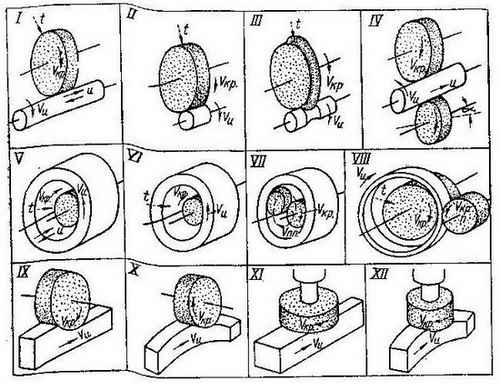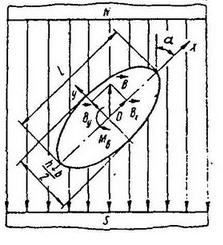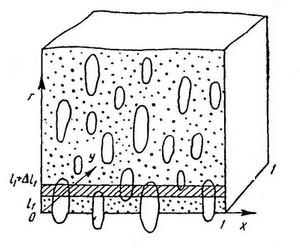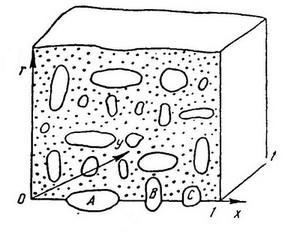Summary of research and developments
1 Introductory part
Introduction
Grinding - the basic method of fair processing
of metals also occupies a foreground in modern mechanical engineering.
Grinding provides a split-hair accuracy of details
and cleanliness of their surfaces in many respects defining wear resistance
of surfaces and durability of details, and also reliability and rapidity of
all mechanism as a whole.
Work urgency
The analysis of efficiency of application of grinding circles shows that,
despite a wide circulation, they only partially use the potential
possibilities. One of principal causes of such position is disorder of the
form and orientation of abrasive grains in a body of the given tools. Any form
and arrangement of grains in a body of circles, as consequence, form any and
adverse geometry of their cutting microwedges. As a result the part of grains
does not participate in general or takes weak part in cumulative process of
microcutting. The disorder form and orientation of grains form also defects
of structure of grinding circles and, as consequence, reduce their durability
and admissible speed of work. Orientation of grains in grinding circles open
prospect of increase of physicomechanical and cutting properties of these
tools and, therefore, are an actual problem.
The work purpose
The work purpose consists in increase of
operational possibilities of grinding circles on the basis of use of grains
with controllable orientation.
The primary goal of work: increase of cutting
properties of grinding circles.
2 Theoretical part
The basic methods of grinding
The basic methods of grinding of metals:
1. The external round:
1) with longitudinal (axial) giving;
2) with cross-section giving;
3) the eccentric.
2. Internal
1) with longitudinal giving;
2) the planetary.
3. Flat
1) circle periphery;
2) a circle end face.
4. Special.
 Drawing 1 - The basic methods of grinding
Drawing 1 - The basic methods of grinding
The general data on orientation of grains
Quality and accuracy of the processed surface,
productivity of process and processing cost are substantially defined by
cutting properties of the applied tool, its firmness. Now requirements to
finishing operations, and in particular to operations on which superfirm
abrasive materials are applied, have so increased that the further perfection
of process of abrasive processing is impossible without improvement of quality
of the applied tool, the further development of the theory of abrasive
processing, without deep studying of physical essence of occurring processes.
 Drawing 2 - The scheme of orientation of grain in an electromagnetic field
Drawing 2 - The scheme of orientation of grain in an electromagnetic field
Cutting properties of separate grains of abrasive
tools, especially diamond and эльборовых circles, are used insufficiently
effectively. Classification of grain by the form allows to raise efficiency
of their use.
Abrasive ability and mechanical durability depend on
the grain form force of its coupling with a sheaf. To raise cutting properties
and wear resistance of a circle it is possible at the expense of correct
orientation of its grains, especially if they are classified under the form
and have the extended form. The focused grains resist to destruction and
вырыву from a sheaf thanks to stronger fastening is better.
 Drawing 3 - The scheme of an arrangement of the focused grains in a circle
Drawing 3 - The scheme of an arrangement of the focused grains in a circle
 Drawing 4 - The scheme of an arrangement of nondirectional grains in a circle
Drawing 4 - The scheme of an arrangement of nondirectional grains in a circle
Abrasive ability and mechanical durability depend on
the grain form force of its coupling with a sheaf. To raise cutting properties
and wear resistance of a circle it is possible at the expense of correct
orientation of its grains, especially if they are classified under the form
and have the extended form. The focused grains resist to destruction thanks
to stronger fastening is better.
Orientation can be carried out in electric, magnetic
and electromagnetic fields.
Animation
 Drawing 5- The scheme of orientation of grains in an electromagnetic field
(animation in volume - 123 кВ, consists of 13 shots, 7 repetitions)
Drawing 5- The scheme of orientation of grains in an electromagnetic field
(animation in volume - 123 кВ, consists of 13 shots, 7 repetitions)
3 Final part
Conclusions
Researches of grinding of steels by grinding
circles with the focused grains has shown that the size of a deleted material
has increased approximately by 20 %.
The major factors providing increase of efficiency of
grinding at the expense of orientation of grains in a circle, reduction of a
negative forward corner of a cutting profile of grains and increase in their
quantity by a working surface of a circle are.
The literature
1. Маслов Е.Н. Основы теории шлифования металлов. - М.:Машгиз, 1951. - С. 176.
2. Справочник технолога-машиностроителя. В 2-х т. Т.1/Под ред. А.Г. Косиловой и
Р.К. Мещерякова. - М.: Машиностроение, 1985. - С. 496.
3. Справочник технолога-машиностроителя. В 2-х т. Т.2/Под ред. А.Г. Косиловой и
Р.К. Мещерякова. - М.: Машиностроение, 1985. - С. 496.
4. Лёб Л. Статическая электризация/перевод с английского В.М. Фридкина. - М.-Л.: Госэнергоиздат, 1963. - С. 408.
5. Электрические явленияя и активационные воздействия в технологии бетона./В.А. Матвиенко, С.М. Толчин - Макеевка: 1998. - С. 154.
6. Зайцев А.Г. Влияние расположения алмазных зерен на процесс шлифования твердого
сплава. - Вест. Машиностроения, 1977, №8. - С. 71-72.
7. Зайцев А.Г. Влияние ориентированного расположенияалмазных зерен на процесс
шлифования. - В кн.: Материалы VI междунар. конф. Intergrind-79. Будапешт, 1979. - С. 737-742.
8. Поиск на портале - Абразивы и шлифование. Виды связок. [Электронный ресурс] - Режим доступа к статье:
http://abrasiveworld.akptech.ru/catalog/cat-bonds.html
9. Поиск на портале - Абразивный инструмент. Отрезные круги. Шлифовальные круги. [Электронный ресурс] - Режим доступа к статье:
http://www.abrasio.info/shlif.html
10. Поиск на портале - ЗАО «Полтавский алмазный инструмент» [Электронный ресурс] - Режим доступа к статье:
http://www.poltavadiamond.com.ua/ru/site/catalog/inform/info5
|